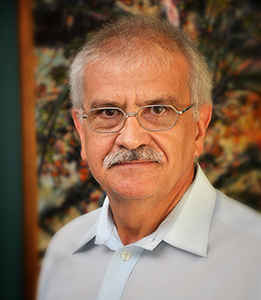Latest News Archive
Please select Category, Year, and then Month to display items
14 June 2024
|
Story Anthony Mthembu
|
Photo Suplied
 Jeremiah Hlahla, a UFS student completing his PhD in Botany at the University of Debrecen as part of an exchange initiative funded by the Erasmus+ Mobility Programme.
Jeremiah Hlahla, a UFS student completing his PhD in Botany at the University of Debrecen as part of an exchange initiative funded by the Erasmus+ Mobility Programme.
As part of an exchange initiative facilitated by the Erasmus+ Mobility Programme, Jeremiah Hlahla, a student at the University of the Free State (UFS), is nearing the completion of his PhD studies at the University of Debrecen in Hungary. Hlahla’s journey, which began in February 2024 and is set to conclude in July 2024, has been a remarkable learning opportunity. “As a first time-traveller to Europe, I have thoroughly enjoyed engaging with people from different countries and cultures,” he said.
The benefits of international collaboration
Hlahla is currently pursuing a PhD in Botany, focusing on plant stress physiology. “My current PhD project investigates the physiological, biochemical and morphological responses of vegetable-type soybean, or edamame, to combined drought and heat stress,’’ he explained. He considers the University of Debrecen the ideal institution to complete his research due to its extensive expertise and resources in similar projects. He noted that his colleagues at Debrecen conduct significant work on plant protection against biotic and abiotic stresses, including salt and drought stress, as well as proteins and amino acids in barley and other legumes.
Given the vast knowledge available on similar projects, Hlahla has found substantial engagement with his work at the University of Debrecen. “Upon arrival, I delivered an introductory lecture presenting my UFS project on the synergistic effects of combined drought and heat stress on the physiology and biochemistry of edamame. It was an engaging session as everyone could relate to my work and asked many questions,’’ he said.
Insights gained from the exchange
Hlahla has also gained valuable lessons that will assist him in his research career, including biotechnology and physiology tools. “I learned how to prepare samples and use high-performance liquid chromatography (HPLC) and reversed-phase ultra-high-performance liquid chromatography (UHPLC) to quantify proteins and amino acids,’’ he said. These techniques are beneficial not only for his current work but will also support future soybean research.
As his experience at the University of Debrecen nears its end, Hlahla reflects on the collaborations and friendships he has formed, which stand out as a significant highlight.
National Department of Health invests R53.5 million in UFS laboratory
2016-02-04

Dr Derek Litthauer
Photo: Supplied |
This year has started off on a high note for Dr Derek Litthauer and his team at the South African National Control Laboratory (NCL) for Biological Products. The National Department of Health has awarded the NCL a contract to the value of R53.5 million to continue testing vaccines for the next three years.
Vaccines are biological medicines used to ensure healthy populations by preventing many diseases. The World Health Organization (WHO) estimates that, worldwide, about 5.2 million children under six years old die annually. Of these deaths, 29% are vaccine preventable. Research has revealed that vaccines prevent about 6 million deaths each year globally. Safe and effective vaccines are essential public health tools, which are strictly regulated internationally. It is the NCL’s responsibility to perform quality control testing on all vaccines to be used on humans in South Africa.
This laboratory, the only one of its kind in Africa, receives samples of vaccines from manufacturers and importers for rigorous evaluation and testing. No vaccine may be used in South Africa without a release certificate issued by the Control Lab, certifying that the vaccine is suitable for human use.
The contract is a commitment to ensuring that only vaccines of the highest quality are used in South Africa.